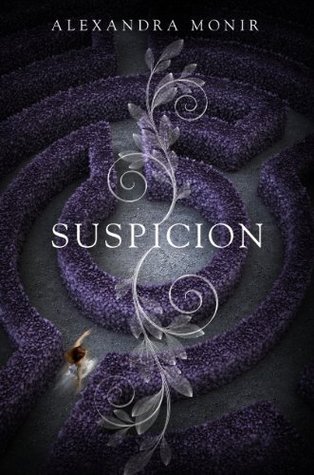 “Suspicion,” by Alexandra Monir, Delacorte Press, Dec. 9, 2014, Hardcover, $17.99 (young adult)
“Suspicion,” by Alexandra Monir, Delacorte Press, Dec. 9, 2014, Hardcover, $17.99 (young adult)
Last night I dreamed I went to Manderley again. … There was Manderley, our Manderley, secret and silent as it had always been, the grey stone shining in the moonlight of my dream. Time could not spoil the beauty of those walls, nor of the place itself, as it lay like a jewel in the hollow of a hand.
—“Rebecca,” by Daphne du Maurier
I was 12 years old when I read those lines for the first time. My mother handed me “Rebecca” and “Jane Eyre” at the same time. I immediately fell in love with both. Though the books were written in different eras, there are many similarities — a mysterious woman, a brooding love interest and a quiet, timid heroine. I’ve read both books so many times; I’ve actually had to replace them. So you can imagine my interest — and dread — when a book billed as a “modern-day, young adult twist on the classic Gothic novel, ‘Rebecca’” arrived. Luckily, “Suspicion,” by Alexandra Monir, lives up to the hype.
The protagonist at the center of “Suspicion” is 17-year-old Imogen Rockford who has been living in New York City since the tragic fire that took the lives of her mother, father and the gardens of her family’s English country manor. It’s been seven years, and despite all efforts to leave the past behind, Imogen still finds herself haunted by her parents’ deaths.
The past has a way with catching up to you, no matter how hard you try to hide from it. Suddenly, Imogen finds herself the heir to her family’s estate and the dark secrets hidden within. She soon finds herself in the middle of murder investigation; with the man she loves accused of the terrible deed.
While there are similarities or nods to “Rebecca” throughout “Suspicion,” they aren’t the reason “Suspicion” works. The reason it works is because of its tone. Alexandra Monir has captured the dark, gothic ambiance that Daphne du Maurier perfected. And it’s not just in the setting, but also in the pacing, character voices and overall storytelling as a whole. She’s not retelling “Rebecca,” she’s using it as inspiration. And with the addition of some paranormal elements, Alexandra has truly made the story her own.
Oh, there are some weird plot twists and other elements that could use some further fleshing out, but I can overlook those problems with “Suspicion.” It will never be as good as “Rebecca,” but it sure comes closer to emulating it than any other book I’ve read.
